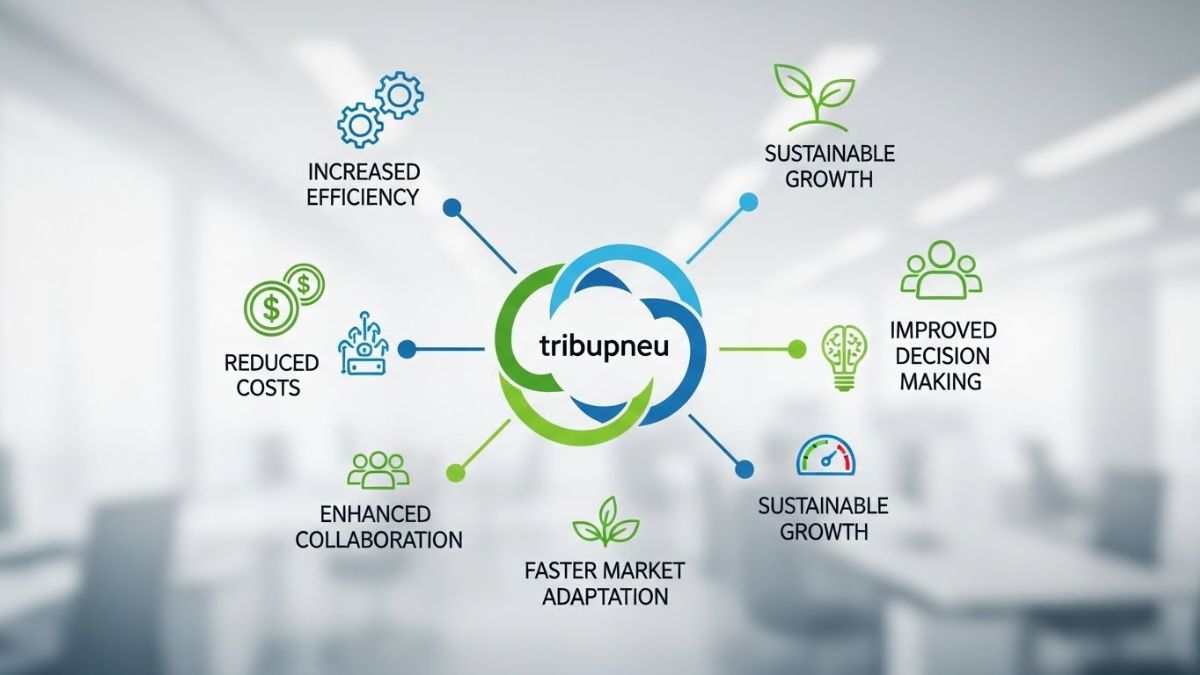Modern marketing has evolved far beyond the simple ads and billboards of the past. Today, it’s a sophisticated blend of digital strategies, data analysis, and technology. But what exactly is modern marketing, and why is it so pervasive in our daily lives? This article explores the insidious proliferation of modern marketing, tracing its evolution, characteristics, and impact on society.
Traditional Marketing Methods
In the not-so-distant past, marketing was all about print ads, TV commercials, and billboards. These traditional methods were broad, targeting a wide audience with a one-size-fits-all approach. They were effective in their time, but lacked the precision and personalization of today’s strategies.
The Rise of Digital Marketing
The internet revolutionized marketing, introducing digital channels that allowed for more precise targeting and measurement. Websites, social media, and email became key tools for reaching consumers. This shift marked the beginning of a more data-driven, personalized approach.
Integration of Technology in Marketing
Today, marketing is deeply intertwined with technology. From sophisticated algorithms that analyze consumer behavior to automation tools that streamline campaigns, technology has become a cornerstone of modern marketing efforts.
Data-Driven Strategies
Modern marketing is all about data. Marketers collect and analyze vast amounts of information to understand consumer behavior, preferences, and trends. This data-driven approach allows for more effective targeting and personalization.
Personalization and Targeting
Gone are the days of generic ads. Today’s consumers expect personalized experiences tailored to their interests and needs. Marketers use data to create targeted campaigns that resonate on an individual level, increasing engagement and conversion rates.
Omnichannel Presence
Consumers interact with brands across multiple channels – from social media and websites to physical stores. Modern marketing ensures a seamless experience across all these touchpoints, creating a cohesive brand presence.
Social Media Platforms as Marketing Tools
Social media has transformed marketing, offering platforms where brands can engage with consumers directly. Sites like Facebook, Instagram, and Twitter are not just social networks; they’re powerful marketing tools that allow for real-time interaction and feedback.
Influencer Marketing
Influencers, with their large followings and perceived authenticity, have become valuable partners for brands. By leveraging influencers, companies can reach niche audiences in a more relatable and impactful way.
Social Media Algorithms and Their Impact
Algorithms determine what content users see on social media. Understanding these algorithms is crucial for marketers, as they influence the reach and visibility of their campaigns.
Importance of Content in Modern Marketing
Content is king in the world of modern marketing. High-quality, relevant content attracts and engages consumers, builds trust, and drives conversions.
Types of Content Marketing
From blogs and articles to videos and infographics, content marketing encompasses a wide range of formats. Each type has its own strengths and can be used to achieve different marketing goals.
Content Marketing Strategies
Successful content marketing requires a strategic approach. This includes understanding the target audience, creating valuable content, and distributing it through the right channels.
The Role of SEO
Search Engine Optimization (SEO) is critical for improving visibility in search engine results. By optimizing content for relevant keywords, marketers can attract organic traffic and enhance their online presence.
The Importance of SEM
Search Engine Marketing (SEM) complements SEO by using paid strategies to increase visibility. SEM campaigns can deliver quick results and are highly measurable, allowing for precise adjustments and optimization.
Best Practices for SEO and SEM
Effective SEO and SEM require staying up-to-date with the latest trends and best practices. This includes optimizing for mobile, creating high-quality content, and leveraging tools for keyword research and performance tracking.
The Effectiveness of Email Marketing
Despite being one of the oldest digital marketing methods, email marketing remains highly effective. It offers direct access to consumers and can be personalized to increase engagement and conversions.
Strategies for Successful Email Campaigns
Successful email marketing involves building a quality subscriber list, crafting compelling content, and analyzing performance to make improvements. Personalization and segmentation are key to maximizing effectiveness.
Personalization in Email Marketing
Personalized emails perform better than generic ones. By using data to tailor messages to individual preferences and behaviors, marketers can enhance the relevance and impact of their campaigns.
Growth of Video Content
Video content has exploded in popularity, becoming a staple of modern marketing. It’s engaging, easy to consume, and can convey complex messages quickly and effectively.
Platforms for Video Marketing
YouTube, TikTok, and Instagram are among the top platforms for video marketing. Each offers unique opportunities for reaching and engaging with audiences through video content.
Creating Engaging Video Content
Successful video marketing requires creating content that is both engaging and valuable. This involves storytelling, high production quality, and a clear understanding of the audience.
Data Privacy Concerns
With the rise of data-driven marketing, privacy concerns have grown. Consumers are increasingly aware of how their data is collected and used, leading to calls for greater transparency and regulation.
Ethical Issues in Targeting
Targeted marketing can sometimes cross ethical boundaries, such as when it exploits vulnerabilities or spreads misinformation. Marketers must navigate these challenges carefully to maintain trust and integrity.
The Psychological Impact on Consumers
Modern marketing techniques can have significant psychological effects, influencing behaviors and attitudes. While this can drive sales, it also raises questions about manipulation and consumer autonomy.
Tools and Technologies
Marketing automation tools streamline and optimize various aspects of marketing, from email campaigns to social media posting. Popular tools include HubSpot, Marketo, and Mailchimp.
Benefits of Automation
Automation saves time, increases efficiency, and allows for more precise targeting. It enables marketers to focus on strategy and creativity rather than repetitive tasks.
Potential Drawbacks
While automation offers many benefits, it can also lead to a loss of personal touch. Over-reliance on automation can result in impersonal interactions that alienate consumers.
Understanding Consumer Behavior
Understanding how consumers think and behave is crucial for effective marketing. This involves analyzing data, conducting research, and staying attuned to trends and preferences.
Influencing Consumer Decisions
Marketing aims to influence consumer decisions by creating compelling messages and experiences. Techniques include emotional appeals, social proof, and scarcity tactics.
The Role of Psychology in Marketing
Psychological principles, such as the need for belonging or the fear of missing out, are often used in marketing to drive engagement and conversions.
Predictive Analytics
Predictive analytics uses data to forecast future trends and behaviors. This allows marketers to make more informed decisions and create proactive strategies.
AI and Machine Learning
Artificial intelligence and machine learning are transforming marketing, enabling more sophisticated data analysis, personalization, and automation.
Emerging Platforms and Technologies
New platforms and technologies are constantly emerging, offering fresh opportunities for marketing innovation. Staying ahead of these trends is crucial for maintaining a competitive edge.
Building Trust with Consumers
Authenticity is key to building trust and loyalty. Consumers value brands that are genuine, transparent, and true to their values.
Transparency in Marketing
Transparency involves being open about business practices, values, and intentions. This fosters trust and can differentiate a brand in a crowded market.
Case Studies of Authentic Marketing
Examples of successful authentic marketing include campaigns that highlight a brand’s commitment to social causes, environmental sustainability, or customer satisfaction.
Key Performance Indicators (KPIs)
KPIs are metrics used to evaluate the success of marketing efforts. Common KPIs include conversion rates, engagement levels, and return on investment (ROI).
Tools for Measuring Marketing Success
Tools like Google Analytics, HubSpot, and SEMrush help marketers track and analyze performance. These tools provide insights that inform strategy and optimization.
Analyzing and Optimizing Campaigns
Continuous analysis and optimization are essential for marketing success. By regularly reviewing performance data, marketers can make adjustments to improve effectiveness and achieve better results.
Conclusion
Modern marketing is a dynamic and complex field, driven by data, technology, and consumer behavior. Its insidious proliferation has reshaped how businesses interact with consumers, offering both opportunities and challenges. As marketing continues to evolve, staying informed and adaptable will be key to success.
FAQs
What is modern marketing?
Modern marketing refers to the use of digital channels, data analysis, and technology to create targeted and personalized marketing strategies. It encompasses a wide range of techniques, including social media, content marketing, SEO, and more.
How has digital marketing evolved over the years?
Digital marketing has evolved from simple online advertisements to sophisticated, data-driven strategies that leverage technology to reach and engage consumers. The rise of social media, mobile devices, and automation tools has significantly transformed the landscape.
What are the key components of a successful marketing strategy?
A successful marketing strategy includes understanding the target audience, setting clear goals, creating valuable content, leveraging multiple channels, and continuously analyzing and optimizing performance.
How can businesses ensure ethical marketing practices?
Businesses can ensure ethical marketing by prioritizing transparency, respecting consumer privacy, avoiding manipulative tactics, and being honest about their products and services. Adhering to industry regulations and guidelines also helps maintain ethical standards.
What are the future trends to watch in marketing?
Future trends in marketing include the increased use of AI and machine learning, the growth of predictive analytics, the rise of new social media platforms, and a greater emphasis on authenticity and transparency in brand messaging.















